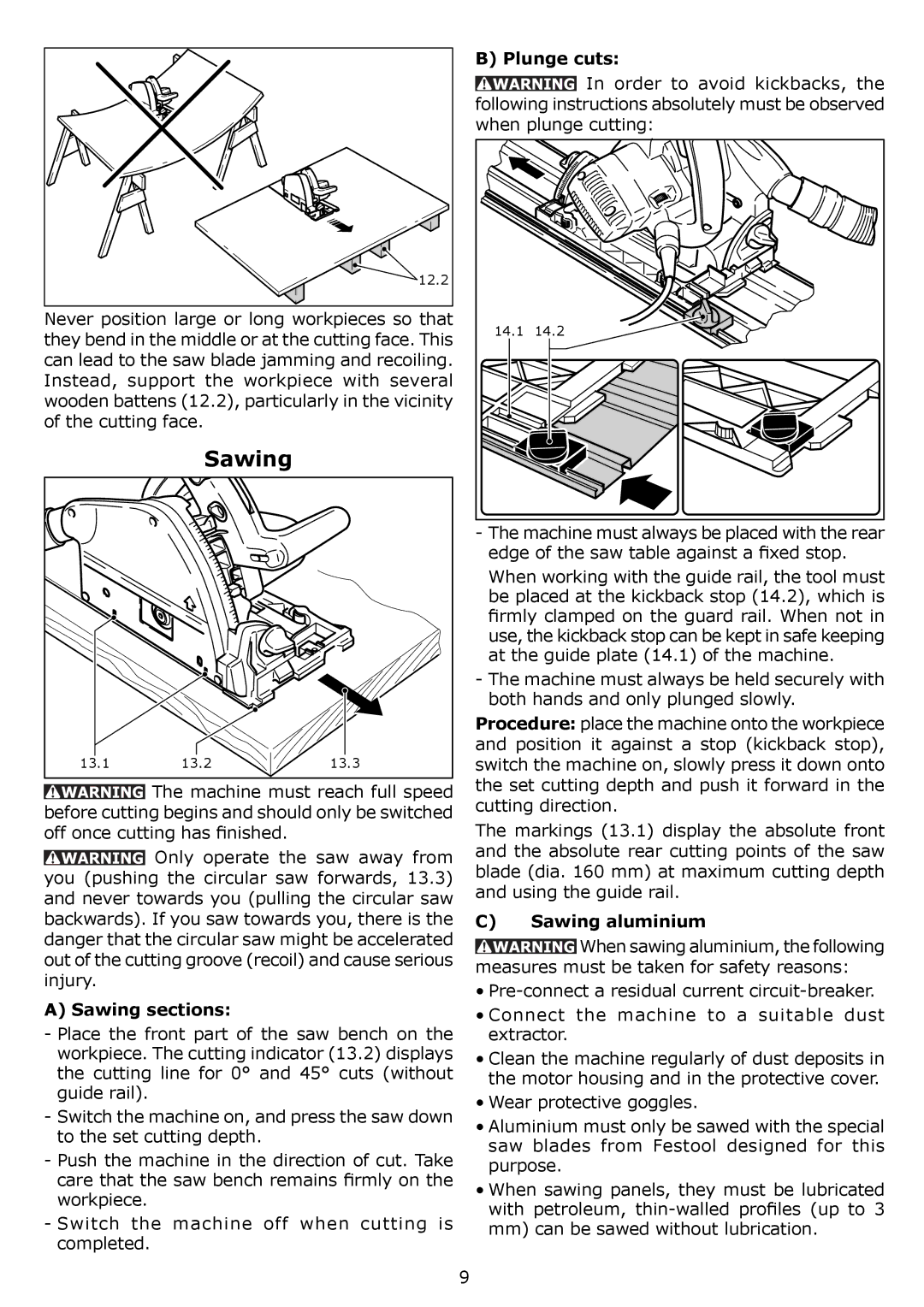
12.2 |
Never position large or long workpieces so that they bend in the middle or at the cutting face. This can lead to the saw blade jamming and recoiling. Instead, support the workpiece with several wooden battens (12.2), particularly in the vicinity of the cutting face.
| Sawing |
|
13.1 | 13.2 | 13.3 |
![]() The machine must reach full speed before cutting begins and should only be switched off once cutting has finished.
The machine must reach full speed before cutting begins and should only be switched off once cutting has finished.
![]() Only operate the saw away from you (pushing the circular saw forwards, 13.3) and never towards you (pulling the circular saw backwards). If you saw towards you, there is the danger that the circular saw might be accelerated out of the cutting groove (recoil) and cause serious injury.
Only operate the saw away from you (pushing the circular saw forwards, 13.3) and never towards you (pulling the circular saw backwards). If you saw towards you, there is the danger that the circular saw might be accelerated out of the cutting groove (recoil) and cause serious injury.
A) Sawing sections:
-Place the front part of the saw bench on the workpiece. The cutting indicator (13.2) displays the cutting line for 0° and 45° cuts (without guide rail).
-Switch the machine on, and press the saw down to the set cutting depth.
-Push the machine in the direction of cut. Take care that the saw bench remains firmly on the workpiece.
-Switch the machine off when cutting is completed.
B) Plunge cuts:
![]() In order to avoid kickbacks, the following instructions absolutely must be observed when plunge cutting:
In order to avoid kickbacks, the following instructions absolutely must be observed when plunge cutting:
14.1 | 14.2 |
-The machine must always be placed with the rear edge of the saw table against a fixed stop.
When working with the guide rail, the tool must be placed at the kickback stop (14.2), which is firmly clamped on the guard rail. When not in use, the kickback stop can be kept in safe keeping at the guide plate (14.1) of the machine.
-The machine must always be held securely with both hands and only plunged slowly.
Procedure: place the machine onto the workpiece and position it against a stop (kickback stop), switch the machine on, slowly press it down onto the set cutting depth and push it forward in the cutting direction.
The markings (13.1) display the absolute front and the absolute rear cutting points of the saw blade (dia. 160 mm) at maximum cutting depth and using the guide rail.
C)Sawing aluminium
![]() When sawing aluminium, the following measures must be taken for safety reasons:
When sawing aluminium, the following measures must be taken for safety reasons:
•
•Connect the machine to a suitable dust extractor.
•Clean the machine regularly of dust deposits in the motor housing and in the protective cover.
•Wear protective goggles.
•Aluminium must only be sawed with the special saw blades from Festool designed for this purpose.
•When sawing panels, they must be lubricated with petroleum,
9
